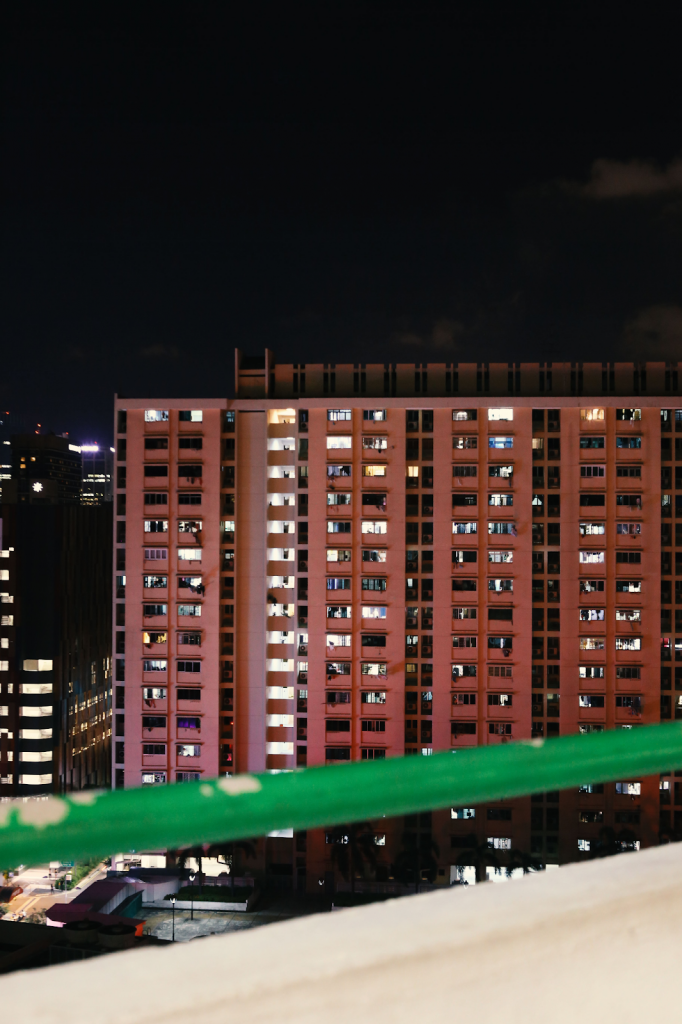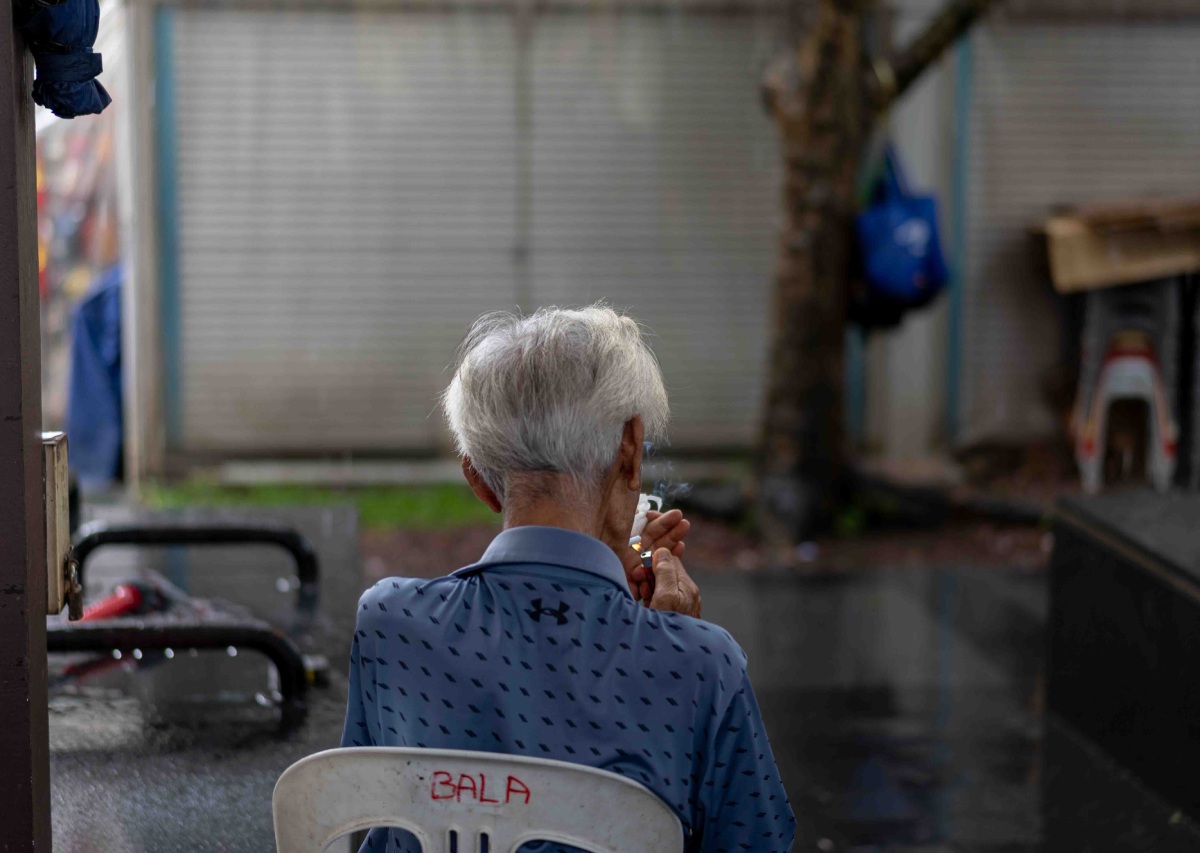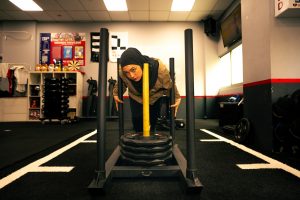Top image: Lim Mei Hui / RICE File Photo
In 1994, the government banned smoking in air-conditioned areas. Since then, the areas smokers can lawfully light up have dwindled: parks, schools, nightclubs, coffee shops, and common corridors in apartment blocks. Even the entire Orchard Road stretch joined the long list of No Smoking Zones.
But there’s one area the law has yet to (and probably won’t) touch: people’s homes.
It’s not for non-smokers’ lack of trying. Nee Soon GRC MP Louis Ng has probably been the most vocal lawmaker in recent years.
He’s appealed to the National Environment Agency to make it easier to track complaints of secondhand smoke from neighbours. He’s also been pushing for smoking near windows and balconies in homes to be made illegal. It’s been over eight years, but his efforts haven’t yielded tangible results.
Still, he doesn’t seem to be giving up.
It’s admirable. Truly. To face repeated rejections and yet tirelessly advocate for your cause takes grit and heart.
Sometimes, it pans out. After spending more than a quarter of his life pushing for HDB flat residents to be allowed to keep cats as pets, Ng finally got his wish when the ban was lifted in September. As for his crusade against secondhand smoke, well, that’s still ongoing.
But do we really need an MP pouring this much time and energy into pushing for stricter enforcement when, honestly, all it takes is a bit of mindfulness about how our actions affect our neighbours?
A People Problem
I know, I know, I’m giving people too much credit. If it were so easy to get people to be considerate, we wouldn’t need fines for littering, spitting in public, or not flushing public toilets.
But is another law regulating smoking at home the answer? Maybe it’s not that our regulations are too lax. Maybe the issue is that—hear me out—we’ve somehow bred this mentality that it’s okay to be inconsiderate as long as it’s not illegal.
Despite all the kindness campaigns, some people believe it’s okay to subject their families and neighbours to secondhand smoke simply because they’re within the confines of their own property.

In a 2021 Parliamentary speech, Mr Ng noted: “Indeed, it is fair to say that deterrence is at the cornerstone of our law and order. It explains why we have such low crime rates.”
If NEA declared that smoking near home windows and balconies was illegal, it would reduce the problem of secondhand smoke, he posits.
“Singaporeans are terrified of breaking the law. It would also help neighbours mediate, as offenders can no longer say that their behaviour is perfectly legal.”
Even if we do hypothetically regulate smoking near windows, though, it won’t fix the selfish mentality that drives people to light up a ciggie in a densely populated apartment block.
A friend living on a low floor laments that her house faces a carpark where smokers like to congregate. It’s not illegal to smoke in open-air HDB carparks, yes, but it still stinks up her home.
When I stayed on campus during my university days, I thought I wouldn’t have to deal with secondhand smoke. Schools are supposed to be smoke-free zones, after all. Instead, I got more than my fair share of cigarette fumes when I was assigned a room beside a shady clearing where the CCTV coverage wasn’t the best.
There’s no doubt that somehow regulating smoking in homes could reduce the number of victims of secondhand smoke. But laws can only go so far in promoting pro-social behaviour.
And do we really need laws to force us to be considerate to each other? Singapore has a first-world economy. I’m not so sure about having first-world people.
The Price of Freedom
Home is supposed to be a private, safe space. Naturally, we’d turn up our noses at people trying to regulate what we do in our private spaces. I get it.
As a non-smoker, I have to admit that there are times when frustration bubbles over. It’s usually in the wee hours when I’m comfortably ensconced in bed, and my neighbour decides to light one up. I then have to scramble to close the windows and wait it out.
When this happens, I fantasise about unrealistic ideas like having smoking and non-smoking flats or building smoking rooms at void decks so smokers can subject each other to their own smoke. Or maybe we should legalise vapes—I’d rather get cancer from tieguanyin-flavoured air than thick, sooty cigarette smoke.

But, as someone who values privacy and freedom, I understand that it works both ways. It wouldn’t be right to expect someone to give up their liberties in their home so I can be more comfortable in mine.
We already live in a country where the authorities enjoy quite a fair bit of power. Police will soon be able to freeze scam victims’ bank accounts. We’ve got CCTVs installed in residential areas to catch high-rise litterbugs. Going nude in your own home is illegal (if you’re in public view).
It’s easy to call for tougher enforcement when it comes to behaviours you dislike. But imagine being told you aren’t free to do what you like in your own home.
Besides that, it’s understandably hard to regulate and police what goes on in homes. Take HDB noise horror stories, for example, where victims often spend years stuck in the mediation process.

While HDB flat residents are encouraged to observe quiet hours from 10:30 PM to 7 AM, the authorities can’t do much if noise disturbances come from inside a home. They can only compel noisemakers in common areas to stop.
The limitations of current laws have essentially allowed disruptive neighbours to subject others to the noise they make. Often, moving away is the only way to escape a ‘neighbour from hell’.
Even when the perpetrator is causing harm to their neighbours, it’s difficult to stop them as long as they’re within their home. It’s the same deal with smokers. Dr Amy Khor mentioned in a 2023 Parliamentary debate that catching those smoking in homes was “not achievable with current enforcement modalities and technology”.
“We cannot prosecute people based solely on complaints of smell or smoke wafting from neighbouring units. We have to catch the offender in the act of smoking at the balcony or window, or have witnesses come forward to testify that they witnessed the act. Yet complainants are often unable to accurately identify the source of the smell or smoke.”
I’m also not sure if encouraging people to snap pictures of neighbours who may or may not be smoking is a good idea. We all saw how online vigilantes took things to the extreme in the throes of the pandemic.
Can We Be Better?
Banning smoking near home windows might reduce secondhand smoke drifting into residences—which is a win, sure. But let’s be real: it won’t suddenly make people more considerate of their neighbours.
So, the deeper question is: what will?
I think what we need is to dismantle the notion that bad behaviour has to be illegal to be socially unacceptable.
We live in a nation of unspoken rules: Don’t touch the tissue packets people leave on kopitiam tables, don’t bring durians into enclosed spaces, don’t cut queues. None of these have to be written into the law. We just do them without a second thought. Perhaps we should add not smoking in homes to the list.
At the end of the day, human decency is an individual responsibility. We should be good neighbours, not because we’re afraid of fines, but because we owe it to each other.






